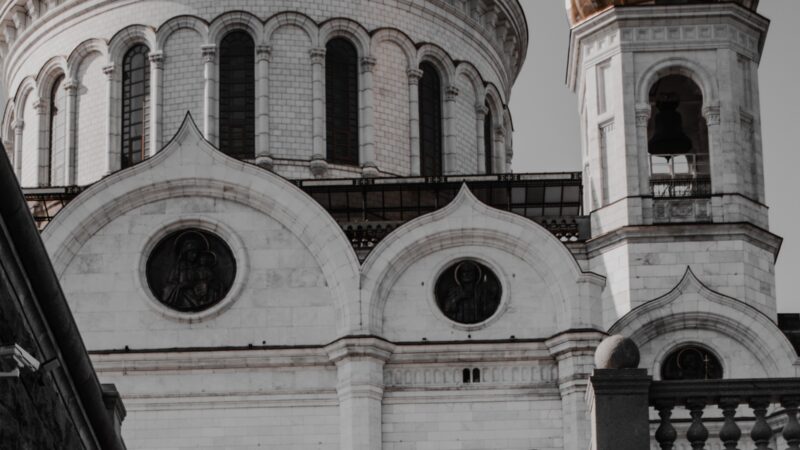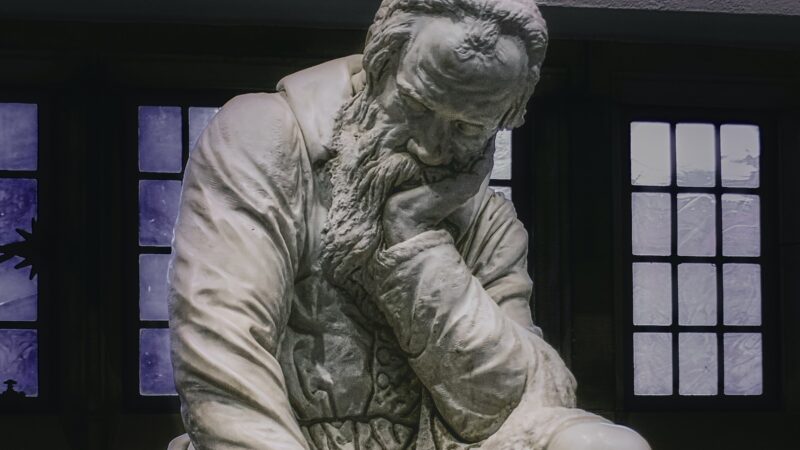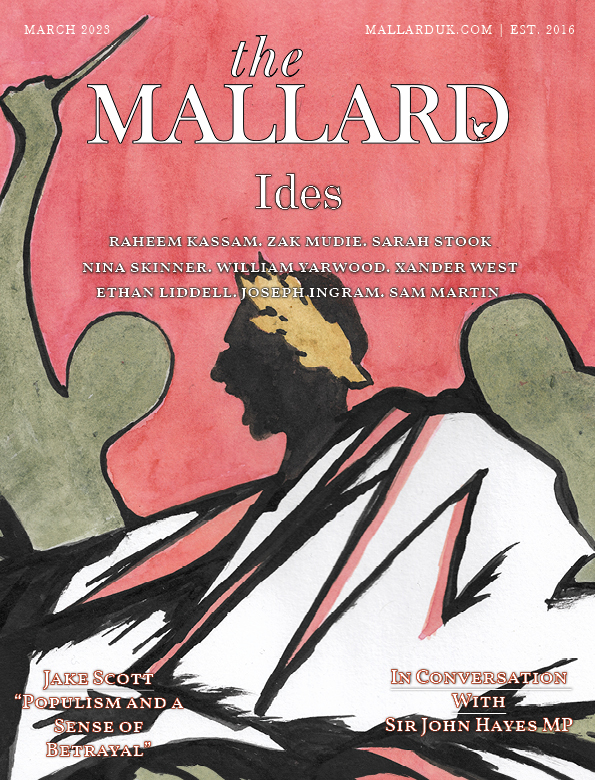Immaturity as Slavery
“… but I just hope the lad, now in his thirties, is not living in a world of secondhand, childish banalities.” – Sir Alec Guinness, A Positively Final Appearance.
The opening quote comes from a part of Alec Guinness’ 1999 autobiography which greatly amuses me. The actor of Obi Wan Kenobi is confronted by a twelve-year-old boy in San Francisco, who tells him of his obsessive love for Star Wars. Guinness asks if he could do the favour of “promising to never see Star Wars again?”. The lad cries, and his indignant mother drags him away. Guinness ends with the above thought. He hopes the boy is weaned from Star Wars before adulthood, lest he become a pitiful specimen.
Here enters the figure of the twenty-first century man-child, alias the “kidult”. He’s been on the radar for a while. Social critic Neil Postman prophesies the coming of “adult-children” in The Disappearance of Childhood from 1982. American journalist Joseph Epstein calls this same creature “The Perpetual Adolescent” in a 2004 article of the same name. But the best summary of this character I’ve yet found is by the writer Jacopo Bernardini, from 2014, to which I can add but little.
The kidult is one who lives his life as an eternal present. As the name suggests, his life is a sort of permanent adolescence. He is sceptical of traditional definitions of adulthood, so has deliberately shunned milestones like marriage and childbearing, in favour of an unattached lifestyle which lasts indefinitely. His relations with other people remain short and shallow; based entirely on fun and mutual use (close friendships or passionate love-affairs are not for him).
Most importantly, the kidult doesn’t change his tastes or buying habits with age. The thresholds of adolescence and maturity have no bearing on the things he likes and purchases, nor how he relates to these things. Not only does he like the same toys and cartoons at thirty as he did at ten, but he continues to obsess over them and impulsively buy them like when he was ten. Enjoying childhood fare isn’t a playful interlude, but a way of life which never ends. He consumes through instant gratification, paying no thought to any long-term pattern or goal.
Although it must not strike the reader as obvious, I think there exists a link between Guinness’ “secondhand, childish banalities” and a kind of latter-day slavery. To see the link needs some prep work, but once laid, I think the reader will see my point.
First to define servility. I believe the conservative writer Hilaire Belloc gave the best definition, and I shall freely paraphrase him. The great mass of people can be restricted yet not servile. Both monopolistic capitalism and socialism reduce workers to dependency, but neither makes them entirely slaves. Under capitalism, society retains an ideal of freedom, enshrined in law. Even as monopolists manipulate the law with their money, the ideal remains. Under socialism, state ownership is supposed to give all citizens leisure to do what they want (even as the state strangles them). In either case then, freedom is present as an ideal in theory even as it ceases to exist in practice. Monopolistic and socialist states don’t think of themselves as unfree.
Slavery is different. A slave society has relinquished even the pretence of freedom for a large mass of the working people. Servility exists when a great multitude are forced to work while having no productive property, and no economic independence. That is, a servile person owns nothing (or effectively nothing) and has no choice whatsoever over how much he works or for whom he works. Most ancient civilisations, like Egypt, Greece, and Rome were servile, with servility existing as a defined legal category. That some men were owned by others was as enshrined by law as the ownership of land or cattle.
Let’s put a little Aristotle into the mix. There are two kinds of obedience: from a free subject to a ruler, and from an unfree slave to his master. These are often confused but distinct. For while the former is reasonable, the latter involves no reason and is truly blind.
True authority is neither persuasion nor force. If an officer argues to a soldier why he should obey, then the two are equals, and there’s no chain of command. But if the officer must hold a gun to the man’s head and threaten to execute him lest he do his duty, this isn’t authority either. The soldier obeys because he’s terrified, but not because he respects his superior as a superior. True authority lies in the trust which a subordinate has for the wisdom and expertise of a superior. This only comes if he’s rational enough to understand the nature of what he’s a part of, what it does, and that some people with knowhow must organise it to work properly. A sailor understands he’s on a ship. He understands that a ship has so many complex functions that no one man could know or do them all. He understands that his captain is a wiser and more experienced fellow than he. So, he trusts the captain’s authority and obeys his orders.
I sketch this Aristotelian view of authority because it lets us criticise servility without assuming a liberal social contract idea. What defines slavery isn’t that the slave hasn’t chosen his master. Nor that the slave doesn’t get to argue about his orders. A slave’s duty just is the arbitrary will of his master. He doesn’t have to trust his master’s wisdom, because he doesn’t have to understand anything to be a slave. That is, while a soldier must rationally grasp what the army is, and a citizen must rationally grasp what society is, a slave is mentally passive.
Now, to Belloc’s prophecy concerning the fate of the west. The struggle between ownership and labour, between monopoly capitalism and socialism, which existed in his day, he thought would result in the re-institution of slavery. This would happen through convergence of interests. The state will take an ever-larger role in protecting workers through a safety net, that they don’t starve when unemployed. It will nationalise key industries, it will tax the rich and redistribute the wealth through welfare. But monopolies will still dominate the private sector.
Effectively, this is slavery. For the worker is protected when unemployed but has entirely lost the ability to choose his employer, or even control his own life. To give an illustration of what this looks like in practice: there are post-industrial towns in Britain where the entire population is either on welfare or employed by a handful of giant corporations (small business having ceased to exist). To borrow from Theodore Dalrymple, the state controls everything about these people, from the house they inhabit to the school they attend. It gives them pocket-money to spend into the private sector dominated by monopolies, and if they want to work, they can only work for monopolists. They fear neither starvation nor a cold night, but they have entirely lost their freedom.
This long preamble has been to show how freedom is swapped for safety in economic terms. But I think there’s more to it. First, the safety may not be economic but emotional. Second, the person willing to enter this swindle must be of a peculiar mindset. He must not know even a glimmer of true independence, lest he fight for it. A dispossessed farmer, for example, who remembers his crops and livestock will fight to regain them. But a man born into a slum, and knowing only wage labour, will crave mere safety from unemployment. Those who don’t know autonomy don’t long for it.
There now exist a troop of companies that market childish goods for adult consumption. They typically do this in one of two ways. First, offering childish products to adults under the guise of nostalgia. The adult is encouraged to buy things reminding him of his childhood, with the promise that he will relive it. Childish media and products are given an adult spin, and remarketed. Toys are rebranded as collectibles. Children’s films get unnecessary, adult-oriented, sequels or remakes (what Bernardini calls “kidult movies”). Originally child-friendly festivals or theme parks are increasingly marketed to childless adults.
The second way is by infantilising adult products. Adverts, for example, have gradually replaced stereotypical busy office workers and exhausted housewives with frolicking kidults. No matter how trivial, every product that is not related to Christmas, is now surrounded by giddy, family-free people engaged in play. The message we’re meant to get is that the vacuum cleaner or stapler will free us to act like children. By buying these things, we can create time for the true business of life: bouncing and smiling with one’s mouth open.
I believe infantilism to be a kind of mental slavery. In both the above examples, three elements combine: ignorance and mass media channel anxiety into childishness. This childishness then binds the victim in servitude to masters who take away his freedom while robbing him in the literal sense.
An artificial ignorance created by modern education is the first parent of the man-child. Absent a proper and classical education, the kidult’s mind is an empty page. Lack of general knowledge separates him from the great achievements of civilisation. He cannot seek refuge in Shakespeare, Dostoyevsky, or Dante, for he has never heard of these. He cannot draw strength from philosophy and religion for the same reason. Neither can he learn lessons from history, for the world begins only with his own birth. Here is a type of mental dispossession parallel to an economic one. Someone utterly ignorant of the answers great people have given to life’s questions will seek only safety, not wisdom.
The second parent is anxiety. Humans have always been terrified of the inevitable decay of their own bodies, followed by death. The wish for immortality is ancient. Yet the modern world, with its scepticism, creates a heightened anxiousness. When all authority and tradition has been deconstructed, there is no ideal for how people ought to live. Without this ideal, humans have no certainty about the future. Medieval people knew that whatever happened, knights fought, villeins worked, and churchmen prayed. Modern man’s world is literally whatever people make of it. It may be utterly transformed in a very short time. And this is anxiety-inducing to all but the most sheltered of philosophers.
Add to this the rise of a selfish culture. As Christopher Lasch tells us, the nineteenth century still carried (in a bastardised way) the ideal of self-sufficiency and virtue of the ancient man. Working and trading was still tied to one’s flourishing in society. Since 1960, as family and community have disintegrated, the industrialised world has degenerated into a Hobbesian “war of all against all”. A world of loneliness without parents and siblings; lacking true friends and lovers. When adulthood has become toxic and means to swim in a sea of disfunction, vulgarity, substance abuse and pornographic sexuality; it’s no surprise some may snap and long for a regression to childhood.
Mass media is the third condition. It floods the void where education and community used to be. The space where general knowledge isn’t, now gets stamped by fiction, corporate advertising, and state propaganda. These peddle in a mass of cliches, stereotypes, and recycled tropes.
My critique of kidults isn’t founded on “good old days” nostalgia, itself a product of media cliches. Fashions, customs, and culture change; and the citizen of today doesn’t have to be a joyless salaryman or housewife to count as an adult. Rather, the man-child phenomenon is a massive transfer of power away from the small and towards the large. The kidult is like an addict, hooked on feelings of cosy fun and nostalgia which are only provided by corporations. These feelings aren’t directed to the good of the kidult but the organisation acting as a dealer. The dealer controls the strength and frequency of the dose to get the wanted behaviour from the addict.
Now we see how kidults can be slaves. First, they’ve traded freedom for safety (false as it is) like Belloc’s proletarians made servile. Unlike the security of a traditional slave, this is an emotional illusion. The man-child believes that there’s safety in the stream of childish images offered to him. He believes that by consuming these the pain of life will cease. Yet man-children get no material or mental benefit from their infantilism. Indeed, they’re fast parted from their money, while getting no skills or virtues in return. The security is merely psychological: a Freudian age regression, but artificially created.
Second, while authority in Aristotle’s sense means to swap another’s judgement for your own, for the sake of a common good you understand; here you submit to another’s judgement for the sake of their private good, which you don’t understand. Organisations seeking only profit or power impose their ideas on the kidult, for their benefit. An immature adult pursues only pleasure, lives only for the present, and thinks only in frivolous stereotypes and cliches implanted during childhood. He’s thus in no position to understand the inner workings of companies and governments. He follows his passions like a sentient puppet obeying an invisible thread, leading always to a hand just out of sight.
In the poem London, William Blake talks about “mind-forg’d manacles”. These are the beliefs people have which constrain their lives in an invisible prison of sorts. For what we think possible or impossible guides our acting. Once mind-forg’d manacles are common to enough people, they form a culture (what’s a culture if not collective ideas on how one should act?). Secondhand childish banalities are such mind-forg’d manacles if we let them determine us wholly. Their “secondhand” nature means the forging has been done for us, and this makes them more insidious than ideas of our own creation. For if what I’ve said above is true, they threaten to make us servile. If enough people become dependent on secondhand childish banalities, as the boy who met Alec Guinness, then the whole culture becomes servile. Growing up may be painful, but it’s a duty to ourselves, that we remain free.













